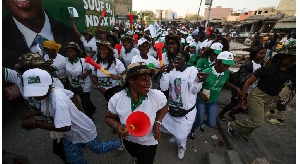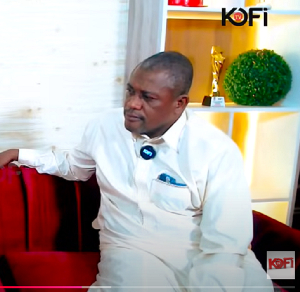Senegal holds a delayed election on March 24 to elect a successor to President Macky Sall, who is stepping down after two terms.
Below are some of the main issues influencing voters.
Lack of jobs
Successive administrations have struggled to curb youth unemployment - an increasingly urgent issue for its fast-growing population, more than 60 percent of whom are now under the age of 25.
The share of young Senegalese not in employment, education or training stood at 35 percent in 2019. Since then, the economic fallout from the coronavirus pandemic has further squeezed the job market.
Frustration at the lack of opportunities has spurred support for opposition firebrand Ousmane Sonko, particularly among the young. He is not running, but has called for supporters to back Bassirou Diomaye Faye, who is seen as a strong contender.
Cost of living
External shocks including the pandemic, Russia's war on Ukraine and the appreciation of the dollar have hit growth and helped drive up the cost of living - a major concern in a country where around a third of the population of 17 million live in poverty, World Bank data shows.
Inflation has been declining slower than expected from a peak of 14 percent in late 2022, partly due to food price rises, according to the International Monetary Fund. India's rice export restrictions have been especially painful for Senegal, where rice is the main staple.
These economic hardships have undermined support for the current authorities despite subsidies for poor families. Nearly three-quarters of Senegalese judged the government to be mishandling the economy, according to a 2023 poll by Afrobarometer.
The same poll showed that the number of people who believed the economic situation to be bad had risen to 62 percent in 2022 from 33 percent in 2017.
Migration crisis
Many voters hope that whoever of the 19 candidates wins the presidency will make it easier to find work and earn a living in Senegal, curbing the flow of Senegalese risking their lives in the quest for better prospects abroad.
Migration from West Africa to Europe via the dangerous Atlantic route more than doubled in 2023 from 2022 with more than 39,900 people reaching Spain's Canary Islands - mostly from Senegal and neighbouring Gambia, according to Spanish Interior Ministry data.
There is no reliable data on the number of people who don't survive the perilous passage by wooden boat on the open ocean.
"The youth are not working and have nothing. The consequence is that they will die at sea," said student Oumy Tall at a campaign rally of opposition candidate Anta Babacar, who has promised to create more jobs.
Oil boom
The launch of oil and gas production later in 2024 is set to boost the economy, raising questions about whether the natural resource wealth will benefit the wider population and create jobs.
Candidates' campaigns have targeted this concern. The Sonko-backed opposition coalition has promised to renegotiate energy contracts to maximise revenues, while Amadou Ba of the ruling Benno Bokk Yakaar (BBY) coalition is running on the slogan "Prosperity Shared".
Thwarted postponement
Recent political turmoil linked to the authorities' unsuccessful bid to postpone the vote by 10 months may have further undermined support for the ruling BBY coalition.
The move provoked widespread protests and revived fears Sall wanted to tweak the constitution to extend his mandate. He denies this.
There are no official public election polls, but of those who voted for Sall in the last election, only 60 percent are believed to be planning to vote for BBY's candidate this time, according to internal government polling.
Africa News of Wednesday, 13 March 2024
Source: theeastafrican.co.ke

















